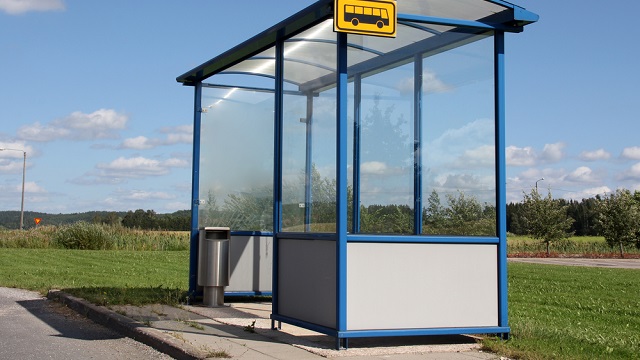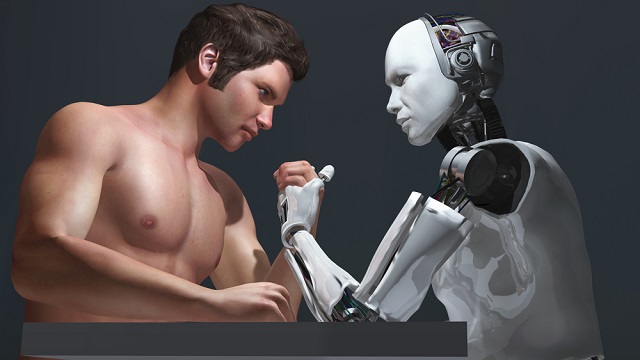Technology & Innovation
All Stories
In an effort to increase the number of riders on public transit, the city is offering $220 off the price of the bikes, which are much easier to carry on and off buses and trains.
More employers and employees are looking into using their own personal devices for work instead of a company computer. Writer Brian Proffitt looks at the benefits and challenges for both groups.
While many colleges offer open online courses, Georgia Tech is the first to offer a full-credit graduate program. What’s more, the degree will cost about a quarter of those offered at traditional, onsite schools.
Big Idea: Economic and Institutional Flexibility
More than 120,000 sites are operating in the .su domain space assigned to the former Soviet Union, and a significant number of them are up to no good. Getting rid of the suffix would be “a messy operation.”
Inspired by Zip Car and similar projects in Europe, Carrot is the first car-share enterprise in Mexico. From just three cars, the program has grown to 40 vehicles and has signed up 8,500 members.
China’s recent purchase of the Virginia-based Smithfield Hams, in what amounts to the largest corporate buyout to date of an American company by the Chinese, is just one of its many global investments.
For the most part, your chances of success in life are a function of the circumstances of your birth.
With the income gap at its highest in many years, several organizations are looking at what worked for the developing world and applying it to the richest country on Earth.
Developed for the mining industry, it tracks drivers’ eyes and uses an audio alert and a vibrating seat to wake them if necessary. In tests, it outperformed other systems that required the drivers to wear special equipment.
Thanks to improved technology and dedicated guides, the amount of traffic on the world’s tallest mountain has increased to the point where climbers are encountering lines and bottlenecks.
Minneapolis-based Miinome is still getting off the ground, but once it does it could become the world’s first “member-controlled human genetic marketplace.”
German carmaker Daimler has announced plans to put QR code stickers on its Mercedes-Benz vehicles, providing emergency personnel with valuable information that can be accessed via a smartphone at the scene.
In a recently released report, an organization proposes that content owners be allowed to distribute software that could perform unpleasant actions on the computers of those caught downloading or viewing content illegally.
While there has been some talk of the Chinese hacking the American military, most of dialogue surrounds private-sector theft: Negotiation strategies, new product blueprints, and the like.
Locally owned cooperatives in the industries of groceries, banking, and insurance are quick becoming an alternative for Americans and changing the face of the nation’s local economies.
Paying individuals more money has long been seen as an acceptable and effective way of motivating them to do better work, but recent research highlights the limits of money as motivator.
As more businesses ditch employee landlines, estimates show that within the next three years, single-phone users will outnumber those with separate work and personal phones.
A proposed People’s Terms of Service Contract would provide a weapon against the often opaque and non-negotiable contracts designed to protect corporations at the expense of users.
With the launch of the mobile platform UberAds, advertisers will be able to use a potential customer’s publicly-available data — including their GPS location — to deliver extremely specific promotions.
A study of participant data from the citizen science project GLOBE at Night shows that on average, people’s observations of artificial night sky brightness were surprisingly accurate compared with satellites.
The Environmental Defense Fund’s Jamie Workman says that suppressing natural forest fires has resulted in a surplus of trees that deprive humans and animals of water and habitat space. His solution: Get out the chain saw.
In the past, new technologies brought new jobs. Today, some experts foresee a future in which automation could take millions of people out of the workforce completely.
A Wisconsin engineer has used a schematic briefly released online earlier this month to design a working prototype with a US$1,725 3D printer and $25 worth of plastic.
MIT scientists have combined a biosensor wristband, a special smartphone, and a mirror attached to a computer to create a system that lets its user review the emotional highs and lows of their day or someone else’s.
The Solar Electric Scooter can be charged by leaving it in bright sunlight or plugging it into a power outlet or external charger.
There may be fewer of them in the future: Half of the people surveyed for a new report said they would prefer to buy their next car from a machine rather than from a human.
New research shows that people presented with an indicator showing the strength of their password created stronger passwords that were also memorable. However, the evaluation method itself is flawed.
One of the country’s leading service providers has announced plans to apply the same kinds of data access limits to its Internet customers as it does to mobile users.
Estimates suggest that nearly a quarter of the world’s youth, aged 15 to 24, are out of work. While some do not seek work for cultural reasons, most find their skills are mismatched to the economy.



























